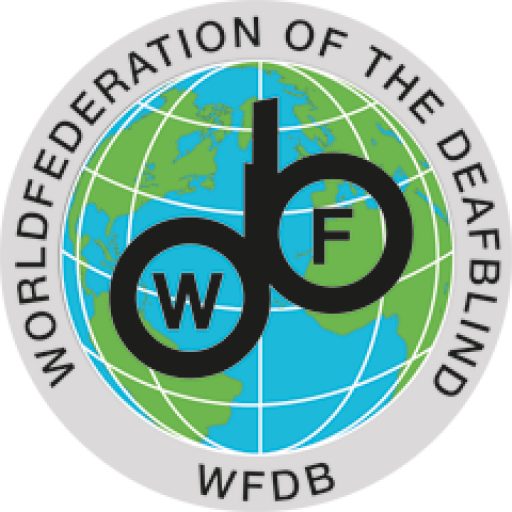The ASSIST project is a three-year initiative co-funded by the European Union under the Erasmus+ Programme. Its primary aim is to reduce discrimination and attitudinal biases among healthcare professionals—including doctors, nurses, paramedics, and psychologists—when assisting women with disabilities throughout all phases of motherhood.
The main objective of the project is to help create welcoming and inclusive healthcare services for mothers and women with disabilities through the training of medical students and healthcare professionals, supported by a highly innovative Digital Ecosystem.
The project will implement a holistic approach to provide a forward-looking training curriculum for both future and current healthcare providers. Additionally, it will carry out outreach and advocacy activities to enhance the capacity of NGOs to contribute to policy change.
The primary focus of the project is to foster more positive, welcoming, and inclusive behavior among medical professionals treating mothers with disabilities, recognizing that social factors and attitudes significantly affect the experiences of parenthood for mothers with disabilities.
Partners
The ASSIST project has brought together a consortium of three higher education institutions from Italy and Greece, as well as seven organizations from across the EU (Greece, Belgium, Italy, and Ireland) that focus on the rights of mothers, persons with disabilities, education, and digital innovation.
In total, the project includes 10 partners from four countries, including the World Federation of the Deafblind (WFDB).
Duration
- 36 months (3 years), from January 1, 2024 to December 31, 2026.
Budget
250.000 €
Background
Persons with disabilities in Europe continue to encounter prejudice, discrimination, inaccessible environments, and attitudinal barriers within society. Mothers with disabilities, in particular, constitute an underserved group, often overlooked by policymakers, researchers, and healthcare providers.
By accompanying, advising, and supporting women throughout their journey to motherhood, healthcare professionals play a crucial role in a mother’s life and decision-making. Unfortunately, women with disabilities frequently report cases of discrimination, stigma, and discouragement from healthcare professionals, including doctors, nurses, paramedics, and psychologists. Many women with disabilities are denied access to fertility services prior to pregnancy, and when they do become pregnant, they often face pressure to terminate their pregnancies or relinquish their newborns for adoption. According to Perez et al. (2023, p. 16), one in twenty children born to a mother with an intellectual disability is immediately placed in social services after birth. In multiple cases, healthcare providers often rush to classify pregnancies in women with disabilities as “high risk” (Camilleri Zahra, ibid.), regardless of individual circumstances. This practice, combined with inadequate prenatal care, contributes to a disproportionately high rate of C-sections among mothers with intellectual disabilities (Perez et al., pp. 15 and 18). Cases of forced sterilization of women with disabilities remain disturbingly frequent (European Disabilities Forum, 2022). It is thus evident that the prevailing practices of many healthcare professionals in developed countries restrict the rights of women with disabilities to equal access to safe pregnancy and motherhood.
These practices violate the rights enshrined in the UN Convention on the Rights of Persons with Disabilities (CRPD), particularly Articles 12, 16, 17, and 23. These articles guarantee the equal legal capacity of persons with disabilities (Article 12), protection from violence and abuse (Article 16), the right to physical and mental integrity (Article 17), as well as their right to marry, found a family, and retain fertility on an equal basis with others (Article 23). Additional relevant CRPD articles, such as Article 6 (women with disabilities), Article 9 (accessibility), and Article 25 (health), affirm their rights to non-discrimination and accessible healthcare.
In response to these challenges, the ASSIST project aims to:
- Help create welcoming and inclusive healthcare environments for mothers and women with disabilities by training students in medical fields and healthcare professionals through the use of an innovative Digital Ecosystem.
- Implement a holistic approach by developing a forward-looking training curriculum for current and future healthcare providers, alongside outreach and advocacy efforts to build the capacity of NGOs and contribute to policy change.
- Foster more positive, respectful, and inclusive attitudes among medical professionals toward mothers with disabilities, recognizing that social barriers and prejudices often impact their experiences of parenthood far more than their disabilities.
Methodology Note: The project will adhere to the United Nations’ “Disability-Inclusive Communication Guidelines
Objectives
- Improve the inclusivity of higher education institutions’ (HEIs) curricula to better address the challenges faced by women and mothers with disabilities.
- Create interconnections between academia, healthcare professionals, and civil society to promote collaborative solutions.
- Promote the lifelong learning dimension of higher education, including by facilitating the take-up, validation, and recognition of short learning courses leading to micro-credentials for higher education students and professionals.
WFDB’s role in the project
WFDB brings valuable expertise and perspective from the deafblind community, including unique insights from mothers with deafblindness. Deafblindness is characterized by a combined vision and hearing impairment so severe that the impaired senses cannot compensate for each other. This significantly limits individuals’ ability to engage in activities and fully participate in all aspects of society. Representing between 0.2% and 2% of the global population, deafblind individuals face distinctive and often unmet needs. WFDB’s involvement ensures that these unique challenges, particularly those faced by mothers with deafblindness, are addressed, enhancing both inclusion and project impact.
WFDB has extensive international experience in relevant areas, including research on healthcare topics, dissemination activities, and project coordination. The organization is highly experienced in accessibility, inclusion, diversity, and intersectionality from a Convention on the Rights of Persons with Disabilities (CRPD) perspective.
Official website
Focal point from WFDB in the ASSIST Project
Lucia D’Arino (projects@wfdb.eu)
